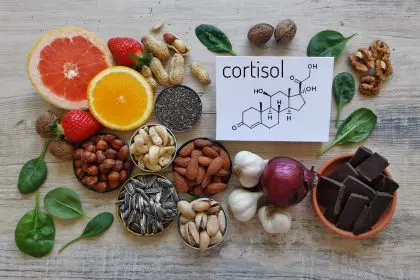Switching to a vegan diet is more than just a dietary choice—it’s a lifestyle shift that can transform your health, reduce your environmental footprint, and align with ethical values. By eliminating all animal products, including meat, fish, eggs, and dairy, and embracing plant-based foods, you open the door to a world of vibrant flavors and nutritional benefits. But like any major change, going vegan requires careful planning to ensure you’re meeting your nutritional needs. Here’s everything you need to know about the benefits, challenges, and practical tips for thriving on a vegan diet.
What does a vegan diet really mean?
A vegan diet is a plant-based eating pattern that excludes all animal-derived products. Instead, it focuses on whole foods like fruits, vegetables, legumes, nuts, seeds, and whole grains. With the rise of vegan-friendly alternatives, such as plant-based meats and dairy-free cheeses, transitioning to this lifestyle has never been easier. Whether you’re motivated by health, environmental concerns, or animal welfare, a vegan diet offers a versatile and sustainable way to eat.
The health benefits of going vegan
Research consistently highlights the numerous health benefits of a vegan diet. Here are some of the most compelling reasons to consider making the switch:
- Reduced risk of chronic diseases: Studies show that vegans have a lower risk of heart disease, type 2 diabetes, and certain cancers, thanks to their higher intake of fiber, antioxidants, and phytonutrients.
- Improved digestive health: A diet rich in plant-based foods promotes a healthy gut microbiome, reducing the risk of digestive issues like constipation and bloating.
- Weight management: Vegan diets are often lower in calories and saturated fats, making it easier to maintain a healthy weight.
- Enhanced nutrient intake: By focusing on whole, unprocessed foods, vegans typically consume more vitamins, minerals, and antioxidants compared to those on a standard Western diet.
Key nutrients to watch on a vegan diet
While a vegan diet can be incredibly nutritious, it’s essential to pay attention to certain nutrients that may be harder to obtain from plant-based sources. Here’s what to keep in mind:
- Vitamin B12: This nutrient, crucial for nerve function and red blood cell production, is primarily found in animal products. Vegans should consider fortified foods like plant-based milks or take a B12 supplement.
- Iron: Plant-based iron (non-heme iron) is less easily absorbed than iron from animal sources. Pair iron-rich foods like lentils and spinach with vitamin C-rich foods like oranges or bell peppers to boost absorption.
- Calcium: Essential for bone health, calcium can be found in fortified plant milks, tofu, and leafy greens like kale and bok choy.
- Omega-3 fatty acids: These heart-healthy fats are abundant in flaxseeds, chia seeds, walnuts, and algae-based supplements.
Building a balanced vegan plate
To ensure you’re getting all the nutrients you need, aim to include a variety of these food groups in your daily meals:
- Legumes: Beans, lentils, and chickpeas are excellent sources of protein, fiber, and iron.
- Nuts and seeds: Almonds, walnuts, chia seeds, and hemp seeds provide healthy fats, protein, and essential minerals.
- Whole grains: Quinoa, brown rice, oats, and whole wheat products offer complex carbohydrates and B vitamins.
- Fruits and vegetables: Incorporate a rainbow of produce to maximize your intake of vitamins, minerals, and antioxidants.
Delicious vegan meal ideas to get you started
Transitioning to a vegan diet doesn’t mean sacrificing flavor or satisfaction. Here are some simple and nutritious meal ideas to inspire your plant-based journey:
- Bean and corn chili: A hearty mix of canned beans, corn, diced tomatoes, and spices, perfect for a cozy dinner.
- Tofu stir-fry: Sauté tofu with broccoli, bell peppers, and snap peas, then serve over brown rice or quinoa.
- Lentil soup: Simmer lentils with carrots, celery, and onions for a comforting and protein-packed meal.
- Hummus and veggie platter: Pair homemade hummus with sliced cucumbers, carrots, and bell peppers for a quick snack or light lunch.
- Nut energy balls: Blend dates, almonds, and cocoa powder for a sweet, energy-boosting treat.
Tips for transitioning to a vegan diet
If you’re new to veganism, making the switch gradually can help ease the transition. Start by incorporating more plant-based meals into your routine and experimenting with vegan alternatives to your favorite dishes. Here are some additional tips:
- Educate yourself: Learn about vegan nutrition and meal planning to ensure you’re meeting your dietary needs.
- Experiment with flavors: Explore new spices, herbs, and cooking techniques to keep your meals exciting.
- Plan ahead: Stock your pantry with staples like beans, grains, and nuts to make meal prep easier.
- Connect with the community: Join vegan groups or follow plant-based influencers for inspiration and support.
When to consult a professional
While a vegan diet can be highly beneficial, it’s important to approach it thoughtfully. If you have specific health concerns or dietary restrictions, consider consulting a registered dietitian or healthcare provider. They can help you create a personalized meal plan and address any potential nutrient gaps.
The bigger picture: why veganism matters
Beyond personal health, adopting a vegan diet has far-reaching implications for the planet and animal welfare. Plant-based diets require fewer resources, produce fewer greenhouse gas emissions, and reduce the demand for factory farming. By choosing veganism, you’re not just nourishing your body—you’re contributing to a more sustainable and compassionate world.
Final thoughts
A well-planned vegan diet can be a powerful tool for improving your health, protecting the environment, and aligning with your values. By focusing on whole, nutrient-dense foods and being mindful of potential nutritional gaps, you can thrive on a plant-based diet. Whether you’re fully committed or just dipping your toes into veganism, every plant-based meal is a step toward a healthier, more sustainable future. So why not start today? Your body—and the planet—will thank you.















